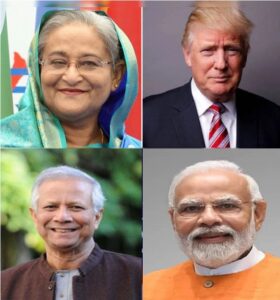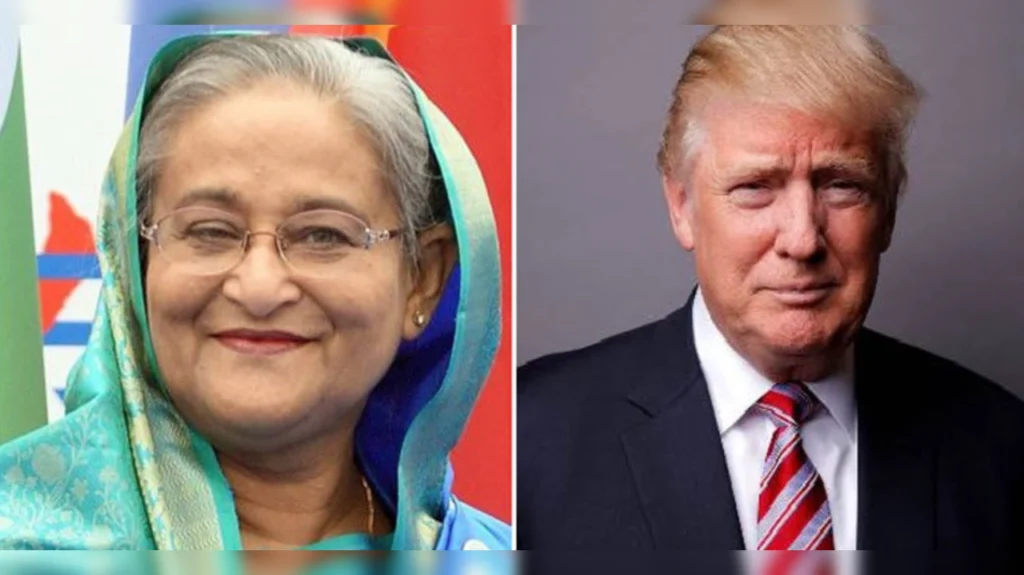
The Trump-Modi Partnership
The partnership between Trump and Modi emerged from a shared vision of economic prosperity and strategic security. Their initial meetings laid the groundwork for a relationship based on mutual respect and shared goals. Both leaders sought to strengthen ties to bolster their positions on the global stage, with a focus on countering China’s growing influence in the Indo-Pacific region.
Defense collaboration was a cornerstone of the Trump-Modi alliance. Joint military exercises like “Tiger Triumph” highlighted their commitment to enhancing regional security and army interoperability. These exercises were crucial in addressing shared threats and reinforcing a strategic presence in the region.
Trade agreements and economic policies were central to the partnership. Despite challenges like tariffs and protectionist measures, trade between the U.S. and India flourished, particularly in technology and agriculture. The economic dialogue aimed to resolve disputes and enhance collaboration, benefiting both nations.
Challenges and Resolutions
Trade disputes, including tariffs on Indian steel and aluminum, tested the partnership. Diplomatic efforts were essential in resolving these issues and maintaining strong bilateral ties. Visa policies, particularly the H-1B visa, created tensions, impacting Indian professionals in the U.S. Despite these hurdles, ongoing dialogue and negotiation helped sustain the relationship.
Sheikh Hasina’s Tenure and Transition
Significant economic achievements marked Sheikh Hasina’s tenure. Major infrastructure projects, such as the Padma Bridge and improvements in transportation networks, contributed to robust economic growth. Her government focused on pro-business policies and incentives for foreign investment, making Bangladesh one of Asia’s fastest-growing economies.
Despite economic successes, Hasina faced criticism for human rights abuses and authoritarian practices. Reports of extrajudicial killings and enforced disappearances drew international condemnation. Allegations of electoral fraud and suppression of political opposition raised concerns about democratic backsliding, impacting Bangladesh’s global reputation.
Public discontent, fueled by economic disparities and perceived corruption, led to political unrest. Protests and civil society movements were crucial in transitioning to an interim government. Dr. Yunus’s appointment as Chief Advisor marked a significant shift, reflecting demands for greater transparency and democratic governance.
Dr. Muhammad Yunus’s New Role
Dr. Muhammad Yunus is renowned for his groundbreaking work in microfinance and social entrepreneurship. Through the Grameen Bank, he revolutionized access to financial services for the poor, earning a Nobel Prize for his efforts. His vision for Bangladesh focuses on sustainable development and empowering marginalized communities.
Yunus faces the challenge of balancing international relations with domestic priorities. Addressing socio-economic challenges and promoting development are central to his agenda. His leadership offers an opportunity to implement innovative policies to transform Bangladesh’s socio-economic landscape and foster inclusive growth.
US-Bangladesh Relations Under Trump
Bangladesh is a crucial trade partner of the U.S., with significant exports in the textile sector. Given the mutual benefits, economic relations are likely to remain stable. However, potential shifts in U.S. foreign policy under Trump could impact areas such as foreign aid and development assistance, necessitating strategic adjustments.
Potential reductions in U.S. contributions could affect Bangladesh’s health initiatives, education programs, and infrastructure projects. To mitigate these impacts, Bangladesh must diversify its foreign aid and investment sources and seek partnerships with other global powers and international organizations.
Past collaborations in counterterrorism have strengthened regional security. The continuation of this cooperation depends on aligning strategic interests. While human rights remain a critical issue, bipartisan support for sanctions like those against the Rapid Action Battalion (RAB) suggests ongoing U.S. engagement in governance and accountability.
The Rohingya crisis remains a significant humanitarian issue. The U.S. has been a major donor, and potential changes in support could affect relief efforts. Bangladesh’s role in addressing the crisis and seeking international cooperation is crucial for sustainable solutions and regional stability.
Bangladesh’s contributions to UN peacekeeping missions are vital. Any reduction in U.S. funding for these missions could impact Bangladesh’s involvement. The country must strategize to maintain its role in peacekeeping and continue its commitment to global security despite financial challenges.
Collaborative efforts between the U.S. and Bangladesh focus on climate resilience and sustainable development. Despite potential shifts in U.S. support, alternative partnerships with other international actors may continue to drive progress in these areas, ensuring that environmental challenges are addressed effectively.
Sheikh Hasina’s Relationship with the U.S.
Sheikh Hasina’s relationship with the U.S. has evolved over her political career. Initially viewed favorably, her increasing authoritarianism strained relations, leading to increased U.S. pressure on governance and human rights issues. These dynamics have shaped Bangladesh’s diplomatic interactions and foreign policy strategies.
Dr. Yunus’s Diplomatic Strategy
Dr. Yunus is seen as a stabilizing figure in U.S.-Bangladesh relations. His efforts to engage with global leaders and organizations are central to promoting Bangladesh’s interests. Building strong diplomatic ties presents opportunities and challenges, requiring careful navigation of international expectations and domestic priorities.
Trump’s Influence on Regional Politics
Trump’s potential return to office could influence U.S. engagement in South Asia. His strategic goals and views on personal diplomacy may shape the region’s dynamics. Balancing these influences is critical to maintaining stability and fostering cooperation, particularly in addressing shared security concerns and economic opportunities.
Bangladesh’s economic growth presents opportunities for long-term investment and development. Strategies for enhancing competitiveness in the global market and expanding into new sectors are vital for sustained progress. Emphasizing innovation and technology can drive future economic success and regional leadership.
Navigating relations with major powers like China, India, and the U.S. is crucial. Bangladesh can potentially assert its role in regional geopolitics, balancing strategic interests and fostering alliances that enhance stability and prosperity. Diplomatic agility and strategic foresight are essential in this complex landscape.
Strengthening democratic institutions and promoting social justice are central to Bangladesh’s future. Civil society and grassroots movements’ role in driving reform and accountability is essential for achieving sustainable development. Emphasizing transparency and inclusivity can foster greater public trust and international support.
The evolving dynamics in South Asia, shaped by leaders like Trump, Modi, Hasina, and Yunus, present challenges and opportunities. As these figures navigate their respective roles, their decisions influence the region’s trajectory. The interplay of governance, economic development, and social justice remains crucial in addressing the aspirations of South Asia’s populace. This ongoing evolution will significantly impact the region’s future, offering a hopeful outlook on its potential to overcome challenges and thrive globally.
Writer:
Dr. Fakhrul Islam Babu
President, Asian Club Limited
General Secretary, China Bangladesh Friendship Center-CBFC

